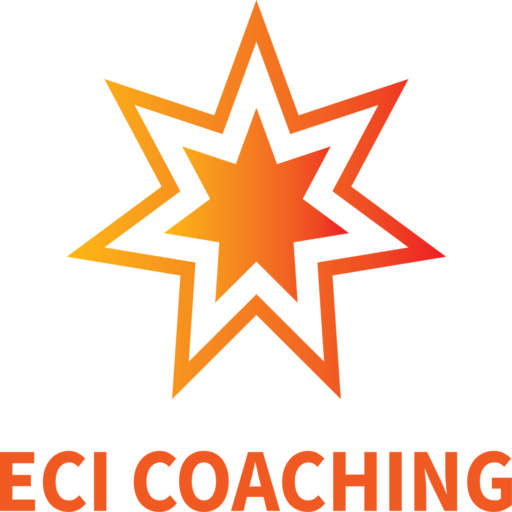Executive Coaching VS Life Coaching – What’s The Difference?

A frequently asked question we get is “what is life coaching?”. A close second is “what is the difference between executive coaching and life coaching?”.
When I was first introduced to the coaching world, these terms seemed confusing to me in grasping the differences and similarities. Understandably a lot of people tend to misinterpret these terms as well, being the two broader tenets of coaching. The problem with this misunderstanding is that we would not know which type of coaching would be best suited for us. This article aims to be an insight into executive coaching and life coaching as well as dispelling any confusion between the two types of coaching.
Definitions
To understand how they are different, knowing what they mean would go a long way in uncovering their subtle and obvious distinctions. In essence, both types of coaching use similar techniques. The variation is in the angle or approach used.
 First of all, coaching, unlike counselling, is intended to mirror the present moment of what happens within a person into the external world and vice versa. Clients seek coaching when there is a divergence between the internal and external world in that moment. Because the manifestations or results are external in both executive coaching and life coaching, that is where lies the space for confusion between them. For example by resolving your shyness to network, you are better able to score a valuable client. Either executive or life coaching can shed some light on how to improve the expansion of your network. Therefore, increasing the chances of getting a valuable client. From working on yourself or on your professional life, the external result could be the same.
First of all, coaching, unlike counselling, is intended to mirror the present moment of what happens within a person into the external world and vice versa. Clients seek coaching when there is a divergence between the internal and external world in that moment. Because the manifestations or results are external in both executive coaching and life coaching, that is where lies the space for confusion between them. For example by resolving your shyness to network, you are better able to score a valuable client. Either executive or life coaching can shed some light on how to improve the expansion of your network. Therefore, increasing the chances of getting a valuable client. From working on yourself or on your professional life, the external result could be the same.
Now that we know what coaching does, executive coaching is about the client focusing on the external outcome – generally professional in nature – rather than the internal change. The coach’s job is then to empower the client in using the existing abilities and closing the gap on what is missing to achieve the external outcome desired by the client. Through this process, the you as a client might have to conduct an internal reality check on your tangible and intangible assets as well as weaknesses. This then becomes necessary and a preliminary step to establishing an action plan on how to overcome internal and external factors in order to reach the wished outcome. The focus clearly is and remains on what the individual can DO to get the external outcome.
If executive coaching is about resolving the issues for an external manifestation, then primary focus of life coaching is examining inwards. The individual sees himself or herself as part of the problem or as a factor that hinders his or her own defined successes.
In life coaching, the aim is to erode the internal barriers you wish to overcome as those tend to prevent you from getting what you want. For instance, your lack of self-confidence is impeding your ability to speak in public, close sales, find the right partner (in life or professionally). Hence the focus is mainly on what the individual can BE in order to see the wished results, while the external manifestation of it serves as a reality check on the internal shift.
Often the spheres between executive coaching and life coaching tend to overlap. An external problem you would like to solve may require some internal work to help reap the manifestation externally. More importantly, to prove that you have overcome this internal challenge, it should be demonstrated, externally in terms of what you HAVE done.
So which approach is the best way to help you achieve your goals? Depending on your main objective, the coach will actively listen in order to decide which angle would be the most efficient.
Translation of the Coaching Angle in the Approach
There is a lot of talk about the approaches that executive coaching and life coaching can take.
A simple and yet efficient framework I learned at Executive Coach International is to look at three things: Be – Do – Have.
From actively listening to your concern, the coach should be able to understand who you are or who you want to be. Thus translating what you currently do or don’t do to what you get through the sessions.
Executive coaching focuses primarily at what you do and what you have, with a secondary focus on who you are while analysing what you do/don’t do to get the achieved results so far . Life coaching primarily examines who you are and how that way of being translates into your actions and results .
Hence the choice between executive or life coaching depends on the kind of questions you want answered. This question, ‘what’s next in my life?’, is it about wanting to know more about who you are or is it about which other territory you wish to explore and conquer? I see these kinds of questions as a grey area and the coach needs to dig a bit deeper before making a conclusion in the direction of coaching sessions.

Perhaps a better way to explain it is by looking at a person who missed out on a promotion. How would the angle and approach be different between executive coaching or life coaching?
- Executive coaching: The coach examines the individual’s actions (what they do) to get promoted. It is about looking at the shortcomings of the capabilities, actions and/or action plan and how to improve on it.
- Life coaching: The coach will invite the client to realize who they need to be in order to get promoted. Through that process, the client will profile himself to see how his being is impeding him to get the wished promotion.
Ultimately, taking the executive or life coaching angle becomes a preferred angle of approach set by the client. There is no ranking between the two since each coaching road should lead you to Rome.
Now that you have a better understanding on the nuances between executive coaching and life coaching, how can you tell which one works for you?
Reflect on these questions:
- What is the main issue you want to solve?
- In order to resolve that issue, where does the problem lie – mainly internal or external?
- What kind of manifestations would you like to get out of the coaching?

